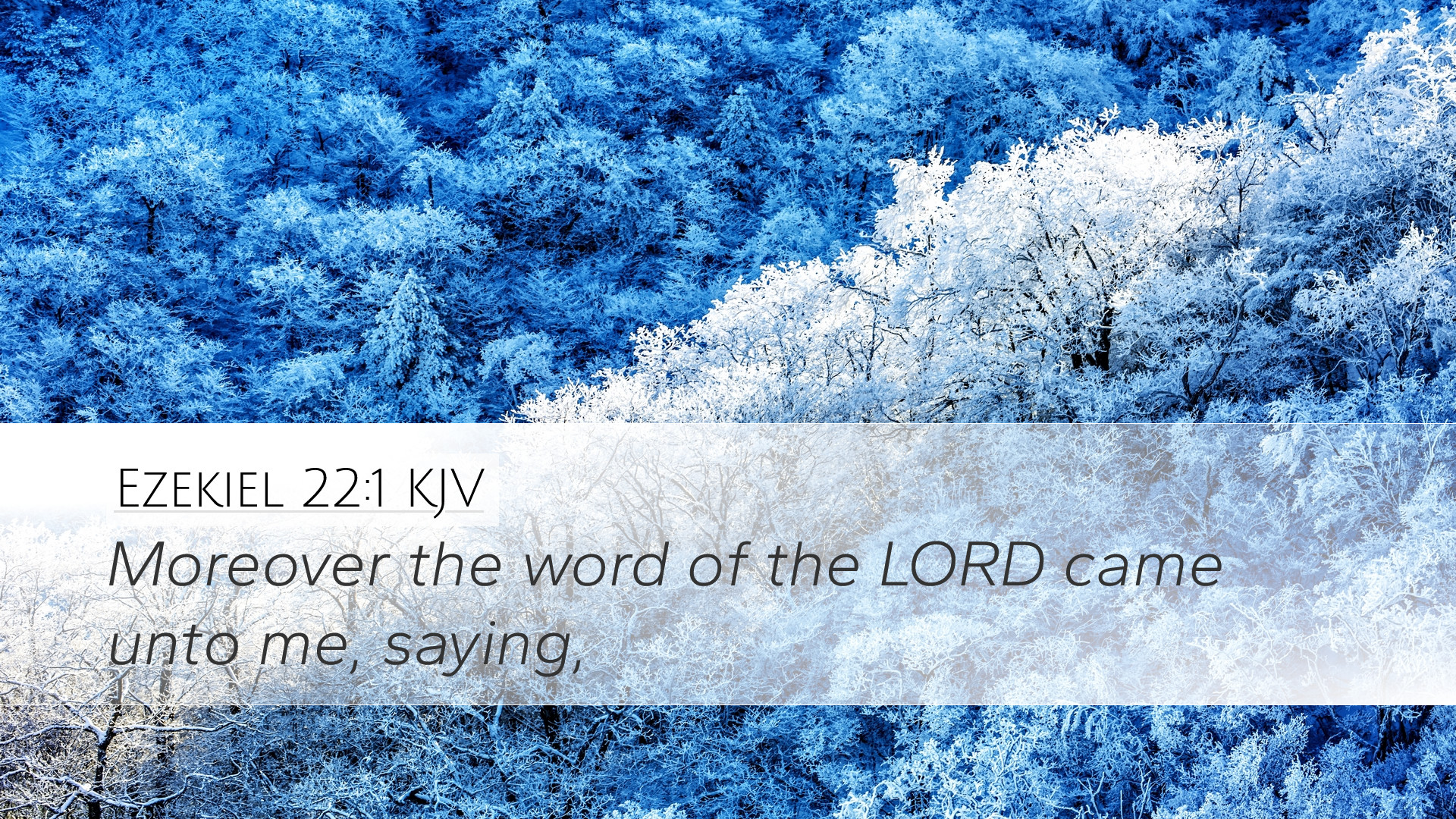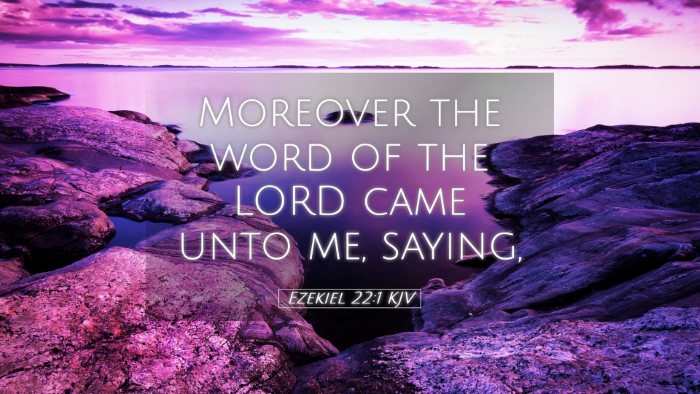Ezekiel 22:1 - Commentary Summary
Bible Verse: "Moreover, the word of the LORD came unto me, saying," (Ezekiel 22:1)
Introduction
The prophet Ezekiel is often viewed as a watchman of Israel, tasked with delivering divine messages to a society steeped in sin and idolatry. Ezekiel 22:1 marks a pivotal moment in his prophetic ministry as God calls him to address the moral and spiritual decay pervasive in Jerusalem. This passage serves as an introduction to a series of denunciations against the people of Israel, highlighting the nation's profound need for repentance and restoration.
The Nature of God’s Word
The phrase "the word of the LORD came unto me" indicates the authoritative nature of Ezekiel's message. Each time this phrase is employed throughout the Book of Ezekiel, it emphasizes the urgency and divine mandate behind the pronouncements that follow.
-
Divine Authority: Matthew Henry notes that the phrase stresses the importance that God places on communicating His will to mankind. The word of the Lord is not to be taken lightly but is a serious channel of divine instruction.
-
Prophet's Role: Adam Clarke highlights the responsibility of the prophet Ezekiel as a conduit through which God's messages are imparted. The implications of this responsibility weigh heavily on the prophet, representing God's concerns for His chosen people.
Context of Judgment
The coming judgment declared in the subsequent verses arises from the multifaceted sins of the Israelites. Following Henry's insights, we can explore several key aspects concerning this judgment:
-
Moral Degradation: The surrounding context reveals how deeply rooted sins within the nation require a pronounced declaration. The people of Israel are characterized by their unfaithfulness and disregard for God's law (Ezekiel 22:2-5).
-
Spiritual Corruption: Barnes emphasizes that the leaders and people alike have corrupted their ways, involving themselves in practices that borders on idolatry, exploiting the innocent, and a blatant disregard for justice.
Call to Repentance
Ezekiel's prophetic mission is not merely to condemn but to call the people to repentance. Understanding this function allows us to appreciate the heart of God, which longs for the restoration of His people.
-
A Warning and Invitation: Clarke posits that each warning that Lord gives is imbued with the hope of repentance. This reflects the nature of God's character as loving and just, desiring that none should perish.
-
Possibility of Restoration: There is always a remnant, as Barnes points out, that remains faithful even in times of great apostasy. The call for repentance is a hopeful call, potentially leading to restoration.
Implications for Today
For pastors, theologians, and students, Ezekiel 22:1 serves as an enduring reminder of the divine watchfulness over human conduct. The text challenges contemporary believers to consider:
-
The Call to Accountability: Just as Ezekiel was called to deliver a message of judgment, modern-day leaders are also called to a similar role in guiding their congregations with integrity and truth.
-
Recognizing Systemic Sin: As the remnant recognizes the manifestations of systemic sin within a community, it serves as a call to prayer, advocacy, and action in light of injustices today.
Conclusion
In summary, Ezekiel 22:1 encapsulates a profound moment in the prophetic tradition, where the word of God confronts sin head-on. The insights from public domain commentaries guide believers to action, emphasizing the vital role of repentance and the potential for restoration. With a belief rooted in the hope of redemption, this verse remains relevant for both personal and communal reflection on God's justice and mercy.


